There’s an irony in the timing of Silvio Berlusconi’s death at the age of 86, coming on the same weekend that saw the (at least temporary) exit from politics of Boris Johnson. For in many respects, the Cavalierie (‘Knight’) as he was universally known in Italy, was an even more flamboyant role model for our former prime minister.
Berlusconi, who led four Italian governments, blurred the lines between showbusiness and politics until they became all but invisible – in much the same way Boris Johnson has in Britain.
True, Boris may not yet be as wealthy as the billionaire Berlusconi, who was Italy’s third richest man. Boris’s short reign at the political summit was far briefer than his Italian counterpart’s three decades at the top. But for sheer chutzpah, jaw-dropping scandals and polarisation of opinion the two men were as alike as peas in a pod.
Berlusconi survived many more scandals, sexual and financial, than Boris, and he changed Italian politics in ways at least as profound as Brexit has changed Britain. Born into a modest Milanese milieu, Berlusconi made the first of his many millions building a housing estate on the outskirts of his native city. He had already dipped a tentative toe in showbiz by working as a schmaltzy crooner on cruise ships.
More than in most countries, the wheels of Italian society run on cronyism when they are not greased by downright corruption. Berlusconi ensured his place at the top table with his membership of the P2 Masonic lodge: the secretive outfit at the heart of the sinister networks linking crime, the Vatican, right-wing terrorism and dodgy finance with Italy’s deep state in the closing years of the 20th century.
More than in most countries, the wheels of Italian society run on cronyism when they are not greased by downright corruption
Berlusconi first found fame when he founded a chain of private TV stations that broke the monopoly of the RAI (Italy’s state broadcaster). His Fininvest and Mediaset firms also acquired the AC Milan football club, which he owned for more than thirty years before selling it in 2017. His upwardly mobile path was smoothed by his friendship with Bettino Craxi, the spectacularly crooked leader of the Italian Socialist party.
Like many tycoons, Berlusconi was keen to wield political influence. He finally got his chance in the early 1990s, when the three parties that had dominated Italy since World War Two: the Christian Democrats, the Communists and Craxi’s Socialists collapsed more or less simultaneously in a series of bribery scandals known as Tangentopoli.
Berlusconi founded a new right-wing movement ‘Forza Italia!’ (Go Italy!) in 1994 as a personal political vehicle, and within months he was prime minister. Later that year, I encountered the Knight while covering an international summit in Budapest. Bill Clinton, Boris Yeltsin, John Major and Helmut Kohl were all there and with them being bundled into his limo by a posse of security men was Italy’s new leading man.
His appearance among the heavies in dark suit and shades reminded me of a scene from The Godfather, and Berlusconi seemed to glory in his reputation as a man who had made his money in mysterious ways. He was more than happy to bring his ruthless business methods to the job of rescuing Italy from its morass.
Berlusconi’s dubious business practices eventually caught up with him and he was sentenced to perform community service after being convicted on tax fraud charges. But he was best known outside Italy for hosting the notorious ‘bunga bunga’ sex parties.
His louche private life was revealed to the world in 2010, when the prime minister rang police urging them to drop charges against a 17-year-old Moroccan belly dancer know as Ruby Rubacuori or ‘Ruby the heart stealer’. Berlusconi told the cops that Ruby was related to Egypt’s president Hosni Mubarak and that charging her would cause a diplomatic incident. Ruby herself claimed that Berlusconi had paid her thousands of dollars to attend the sex orgies at which he consorted with prostitutes in rituals called ‘bunga bunga’.
The revelations did not come as a complete shock to the jaded Italian public. Shortly before divorcing him, Berlusconi’s long-suffering second wife Veronica Lario had already accused him of backing young female candidates for ‘Forza Italia’ based on their physical charms rather than their political abilities. ‘He is not well,’ she added.
The Cavalieri survived this and many other brushes with the law, though he did not escape entirely unscathed: in 2013, following the devastating Aquila earthquake, he was badly hurt when an assailant struck him in the face with a model of Milan’s famously spiky cathedral. Berlusconi answered all such attacks by accusing the Left of waging a ‘brutal vendetta’ against him.
Thanks to cosmetic work, Berlusconi resembled a waxwork effigy in his later years, but he remained active into his 80s, although outflanked on his right by the populist League of Matteo Salvini and later by Giorgia Meloni’s Brothers of Italy party. Forza Italia is a junior partner in Meloni’s current conservative coalition government.
Love him or loathe him, Berlusconi’s departure from the scene means that Italian and European politics will be left a duller and a lot less colourful place without him.
Got something to add? Join the discussion and comment below.
Get 10 issues for just $10
Subscribe to The Spectator Australia today for the next 10 magazine issues, plus full online access, for just $10.

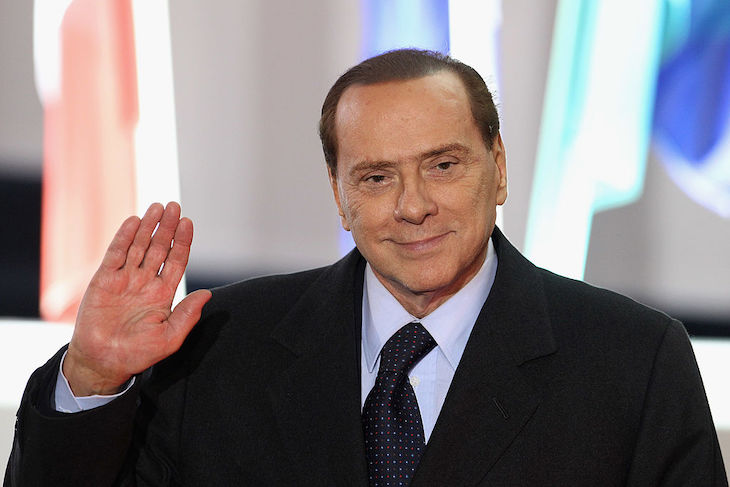
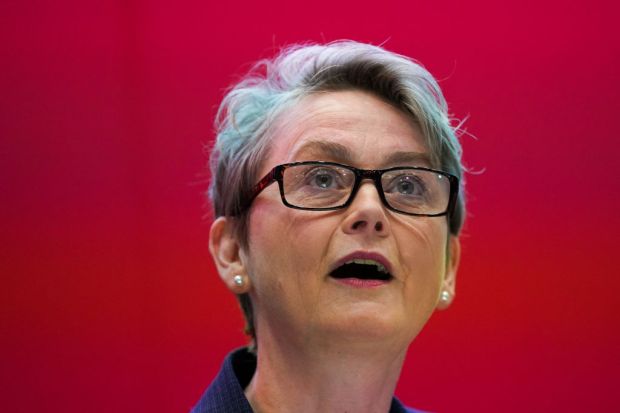

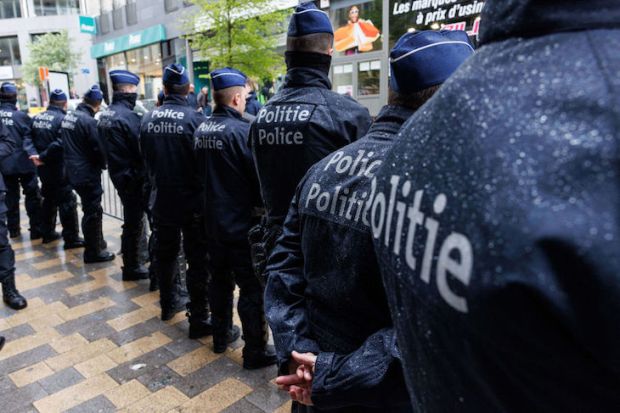
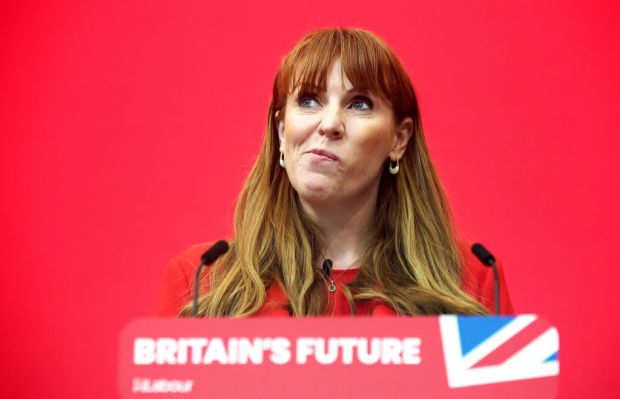
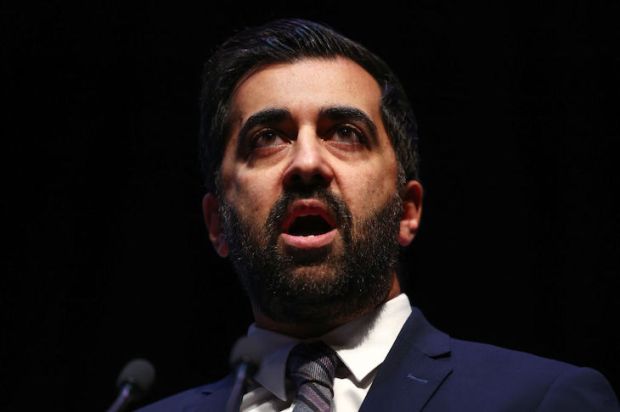
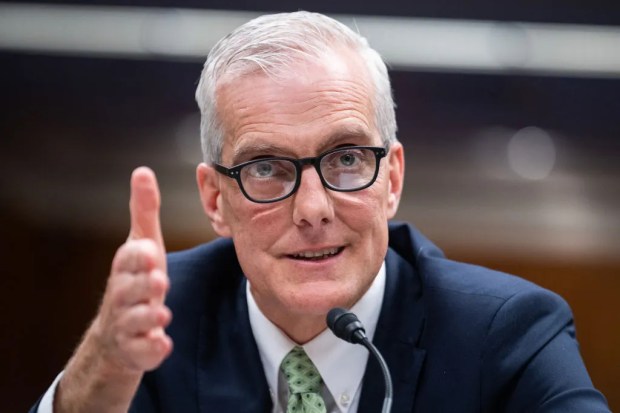












Comments
Don't miss out
Join the conversation with other Spectator Australia readers. Subscribe to leave a comment.
SUBSCRIBEAlready a subscriber? Log in